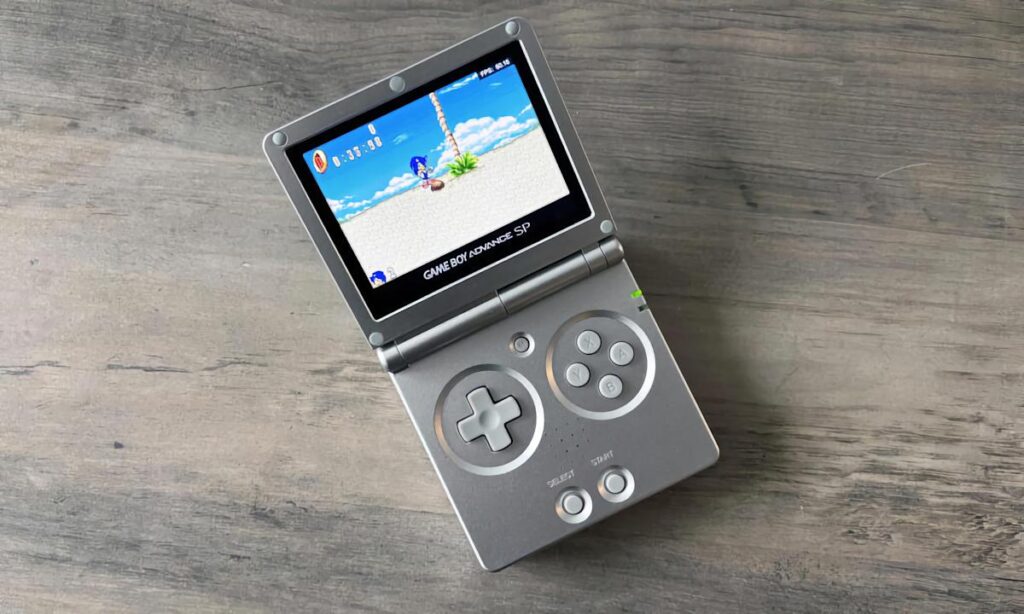
Anbernic US Tariff Impact Forces Retro Handheld Maker to Halt China Shipments
Anbernic US Tariff Impact Forces Retro Handheld Maker to Halt China Shipments
Reading Time: 4 minutes
Anbernic retro gaming handhelds have become popular among emulation enthusiasts but are now facing shipping restrictions to the US due to tariff changes. | Image: Anbernic
The Anbernic US tariff impact has forced the popular retro handheld manufacturer to suspend direct shipments from China to the United States. The company, known for its high-quality emulation-focused gaming devices that have been featured in Engadget’s “Best gaming handhelds” list, announced this policy change in response to recent modifications in US trade policies. American customers will now be limited to purchasing only from inventory already housed in US warehouses, potentially restricting access to future product releases.
Table of Contents
- Anbernic Announcement Details: US Tariff Impact
- Implications for US Customers and Product Availability
- Understanding the Tariff Chaos Affecting Anbernic
- Removal of De Minimis Exemption: Critical Factor
- Future Prospects for Anbernic in the US Market
- Broader Implications for the Gaming Hardware Industry
Anbernic Announcement Details: US Tariff Impact
The Anbernic US tariff impact announcement came directly from the company’s official channels, with a clear message to their American customer base. According to the statement posted on Anbernic’s website: “Due to changes in U.S. tariff policies, we will be suspending all orders shipping from China to the United States starting today.”
Anbernic’s official statement continues: “We strongly recommend prioritizing products shipped from our U.S. warehouse, which are currently not affected by import duties and can be purchased with confidence.” This crucial advisory underscores the direct Anbernic US tariff impact on the company’s distribution strategy.
The timing of this announcement coincides with recent changes in US trade policies that have created a complex and uncertain environment for international retailers, particularly those based in China. The Anbernic US tariff impact represents one of the first visible effects of these policies on the specialized gaming hardware market, potentially setting a precedent for how other similar companies might respond.
Implications for US Customers and Product Availability

Anbernic’s RG405M retro gaming handheld is one of many products now facing shipping restrictions to the US market. | Image: Anbernic
The Anbernic US tariff impact has significant implications for American consumers who have come to appreciate the company’s affordable yet high-quality retro gaming devices. Previously, Anbernic offered flexibility by allowing customers to choose shipment from either Chinese or US warehouses, a strategy that helped avoid customs fees and mitigate inventory shortages in specific regions.
With this option now eliminated due to the Anbernic US tariff impact, American customers will only have access to the limited inventory already present in US warehouses. This restriction is particularly concerning for enthusiasts who follow Anbernic’s product releases, as new models might not immediately (or ever) reach US warehouses under the current policy.
The most immediate consequence of the Anbernic US tariff impact will be reduced product availability and potential delays in accessing new hardware releases. For a company that frequently updates its product lineup with improved technology, this shipping restriction creates a significant barrier between US customers and Anbernic’s latest innovations.
| Shipping Option | Before Tariff Changes | After Anbernic US Tariff Impact |
|---|---|---|
| Direct from China | Available – Lower cost, wider selection | Suspended indefinitely |
| From US Warehouse | Available – Faster shipping, no customs | Available – Limited to existing inventory |
| New Product Releases | Immediately available from China | Delayed or potentially unavailable |
| Custom Options | Available from Chinese warehouse | Limited or unavailable |
Understanding the Tariff Chaos Affecting Anbernic
The Anbernic US tariff impact stems from a period of significant fluctuation in US trade policies, creating an environment of uncertainty for international businesses. On April 9, President Donald Trump announced a 90-day pause on most tariffs, which initially seemed like a positive development. However, this announcement was accompanied by an increase in tariffs specifically on goods imported from China.
This contradictory approach created immediate confusion about which products would be affected and to what extent. Adding to the complexity, certain electronics received specific exemptions from these tariffs, but the Trump administration later clarified that electronics would eventually face their own separate semiconductor tariffs in the future.
The decision by Anbernic to suspend US shipments rather than risk navigating this complex tariff landscape demonstrates a cautious business approach. By focusing on their US warehouse inventory, the company can temporarily avoid the direct Anbernic US tariff impact while monitoring policy developments.
For a company like Anbernic, which operates with relatively thin margins on moderately priced gaming devices, absorbing additional tariff costs would likely be unsustainable without significant price increases. Unlike larger corporations such as Nintendo, which has announced it will absorb tariff costs for its upcoming Switch 2 console, smaller manufacturers like Anbernic lack the financial flexibility to shield consumers from the Anbernic US tariff impact.
Removal of De Minimis Exemption: Critical Factor

The removal of the de minimis exemption significantly impacts budget-friendly devices like the Anbernic RG35XX. | Image: Anbernic
Perhaps the most crucial factor in the Anbernic US tariff impact is the removal of the “de minimis exemption,” which previously allowed packages valued under $800 to enter the United States duty-free. This exemption was a key enabler for Anbernic’s business model, as most of their gaming handhelds are priced well below this threshold.
The elimination of this exemption means that even Anbernic’s most affordable devices would now be subject to import duties when shipped directly to US customers from China. This change fundamentally alters the economics of Anbernic’s direct-to-consumer sales model in the United States.
The de minimis exemption was not only crucial for Anbernic but also for various budget-friendly online retailers like Temu and AliExpress. Its removal represents a significant shift in how international e-commerce operates with US customers, with the Anbernic US tariff impact serving as just one example of its broader consequences.
With this exemption gone, Anbernic would face the choice of either absorbing the tariff costs themselves, which would impact their profitability, or passing these costs on to consumers, which could make their products significantly less competitive in the price-sensitive retro gaming market. Either option presents significant challenges, explaining why the company opted to suspend direct US shipments altogether.
Future Prospects for Anbernic in the US Market
While the current Anbernic US tariff impact has resulted in a suspension of direct shipments, there’s reason to believe this situation might not be permanent. The constantly evolving nature of trade policies means that conditions could eventually improve, potentially allowing Anbernic to resume its previous shipping practices.
The company’s announcement carefully used the term “suspending” rather than “terminating,” suggesting that Anbernic is monitoring the situation and may adjust its policies as trade regulations evolve. This measured approach indicates that the Anbernic US tariff impact is being treated as a temporary obstacle rather than a permanent market exit.
For American customers, the best short-term strategy is to purchase from Anbernic’s US warehouse while supplies last. However, enthusiasts should be aware that new model releases may be significantly delayed or unavailable unless the company establishes alternative distribution methods that can mitigate the Anbernic US tariff impact.
Possible future adaptations could include establishing manufacturing partnerships within the United States or in countries with more favorable trade relations, expanding US warehouse capacity to accommodate new products before announcing them, or restructuring their business model to work with US-based distributors who can handle the importation process.
Broader Implications for the Gaming Hardware Industry
The Anbernic US tariff impact serves as a potential warning sign for the broader gaming hardware industry, particularly for companies that rely on Chinese manufacturing. While industry giants like Nintendo have announced they will absorb tariff costs for major releases, smaller manufacturers may follow Anbernic’s approach of restricting US market access.
This development could ultimately result in reduced competition and consumer choice in the gaming hardware market, with potential price increases for products that do remain available. The specialized retro gaming niche that Anbernic serves may be particularly vulnerable, as these products typically operate with narrower profit margins than mainstream gaming devices.
The long-term consequences of the Anbernic US tariff impact could extend beyond just this one company, potentially reshaping the landscape of budget and specialized gaming hardware availability in the United States. This situation highlights how trade policies can have specific and immediate effects on niche technology markets.
For consumers interested in Anbernic’s products or similar retro gaming devices, the current recommendation is to purchase available stock from US warehouses while monitoring the situation for potential policy changes. The Anbernic US tariff impact demonstrates how quickly market access can change in response to trade policy adjustments, emphasizing the interconnected nature of global commerce in even specialized product categories.





